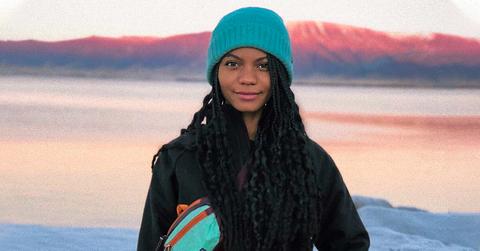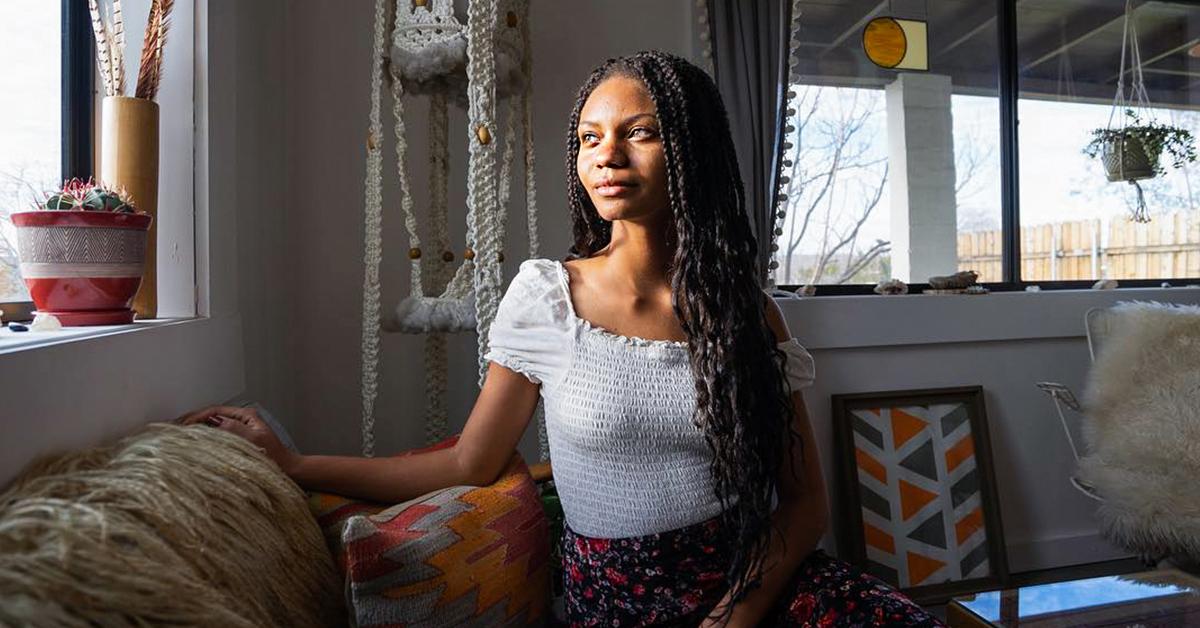‘Intersectional Environmentalist’ Platform Launches to Dismantle Racism in the Climate Movement
"As a Black environmentalist, I see the intersections because I can’t ignore them." —Leah Thomas
Updated Aug. 18 2020, 2:25 p.m. ET

In an Instagram post last month, Leah Thomas, a climate activist better known online as Green Girl Leah, popularized the phrase “intersectional environmentalism,” a form of climate justice that “advocates for both the protection of people and the planet.” Now, just a few weeks later, what simply started as a social media post about an inclusive, anti-racist branch of environmentalism is already blossoming into a new fixture of the current environmental activism zeitgeist.
To learn more about Thomas, why environmentalism should be an intersectional movement, and how she created the Intersectional Environmentalist platform — in record time — we caught up with Thomas in a video call this week.
What is intersectional environmentalism?

“Intersectional environmentalism [is] the type of environmentalism where both people and the planet are considered, so both social and environmental justice are considered, and [they're] talked about in the same conversation. Because in my opinion those things are so interconnected,” Thomas explains to Green Matters in a video chat Monday afternoon, June 15. “When you look at the data with environmental racism, and who unfortunately feels the impacts the harshest right now of environmental injustices, it’s typically low-income and Black and Brown communities. So I just think that it’s something that needs to be talked about in the environmental movement.”
While others have certainly discussed the importance of environmentalism being intersectional, Thomas saw a need to set the environmentalism she (and so many others) practices apart — which she did by turning intersectional environmentalism into Intersectional Environmentalism.
Leah Thomas promoted the idea of “intersectional environmentalism” in an Instagram post.
This all began on Thursday, May 28, when Thomas shared a post to Instagram defining intersectional environmentalism. The post also included an intersectional environmentalist pledge, made up of a list of anti-racist statements that environmentalists should live by, such as: “I will stand in solidarity with Black, Indigenous, and POC communities and the planet,” and “I will amplify the messages of Black, Indigenous, and POC activists and environmental leaders.”
Thomas was inspired by intersectional feminism.
“I got the term from intersectional feminism, the type of feminism that I practice — one that doesn’t shy away from talking about race and the way that intersects with people’s identity within the feminist movement,” she explains. “And it just kind of clicked for me — if my feminism is intersectional, my environmentalism should also be intersectional. And I guess that language was just never put together.”
Thomas’ original post was quickly reposted by numerous accounts, and currently has more than 46,000 likes. Not only did the post go viral, but so did Thomas herself — she tells us that @greengirlleah had about 13,000 followers before she shared that post; as of Wednesday morning, her account has more than 110,000 followers.
Thomas, who graduated from Chapman University with a degree in Environmental Science and Policy in 2017 and then held a position in Patagonia’s communications department for two years, knew to strike while the iron was hot.
About a week and a half after her original post, she launched a new Instagram profile called Intersectional Environmentalist. Then, along with her two business partners — fellow eco activists Diandra Marizet and Sabs Katz (aka Sustainable Sabs) — she got to work building the Intersectional Environmentalist website. The team built the website “from the ground up” in about one week, according to Thomas, and officially launched it on Monday, June 15.
Intersectional Environmentalist provides activists with free resources.
Intersectional Environmentalist is a platform filled with resources, information, and action steps people can take to “support intersectional environmentalism and dismantle systems of oppression in the environmental movement” for all different communities, according to the website.
So far, the communities listed are Black, Latinx, U.S. Indigenous, LGBTQ2S+, South Asian, and allies. Each community page has resources to help people in that community become better intersectional environmentalists, including social media accounts, literature, peer-reviewed studies, personal essays, and more. Thomas says she and her co-organizers have plans to add many other communities soon.
Beyond providing resources for individuals, a large part of the Intersectional Environmentalist platform will be working with brands and organizations — according to Thomas, about 80 professional entities have already been in contact with her about becoming certified as an Intersectional Environmentalist company. Thomas and her team are working on certification criteria, and they plan to “check in with companies once a year and ask for transparent data on how the company is incorporating both diversity and environmental responsibility” to hold them accountable.
“If they would like to post on social media or their website that they support this pledge, then we’d hope that they would support our action steps to be considered an intersectional environmentalist company and to be housed on our website as one of our partners,” Thomas tells us. She added that they plan to offer a sliding scale to make their certification more accessible to small businesses.
Environmentalism is an intersectional social justice issue.
Those who are unclear about why environmentalism is an intersectional justice issue are likely people who have the privilege to not have to see the connections — if that’s the boat you are in, the most important thing you can do right now is learn.
“As a Black environmentalist, I see the intersections because I can’t ignore them, because it’s just my life, and I don’t have the privilege to be able to say these are separate. Because I’ve seen the data on environmental racism,” Thomas explains. “I think it’s a societal issue of humans feeling very disconnected from nature and not being able to see why it is such a huge environmental issue. Because we are humans, we are animals, and we are part of this global ecosystem.”
For more resources on intersectionality in the climate movement, you can of course check out the Intersectional Environmentalist website. But Thomas also wanted to shout out a few of her favorite resources — on social media, she recommends following Pattie Gonia, Queer Brown Vegan, and Mikaela Loach. She’s also a big fan of Theresa Baker, creator of the Outdoor Industry CEO Diversity Pledge, and Black Nature: Four Centuries of African American Nature Poetry, a book of poems about the Black community’s relationship with nature edited by Camille T. Dungy.
Being an intersectional environmentalist is a show of support for the Black Lives Matter movement.
Thomas was pleased to see the concept of intersectional environmentalism resonate with so many people — and she thinks that’s because her pledge helped environmental activists connect with the Black Lives Matter movement over the past few weeks.
“I think a lot of environmentalists were seeing what was happening with this current Black Lives Matter movement ... and didn’t know that they had a place or that they had a say in those things that were happening,” she says. “I wanted to be able to reach out to environmentalists and extend the olive branch and say, ‘You have a part in this movement, you have a responsibility as environmentalists. And if you identify with intersectional environmentalism, then it’s your duty to get involved to make sure both people and the planet are being protected.’”
If you are looking for ways to donate your time or money to Black Lives Matter and other antiracist organizations, we have created a list of resources to get you started.